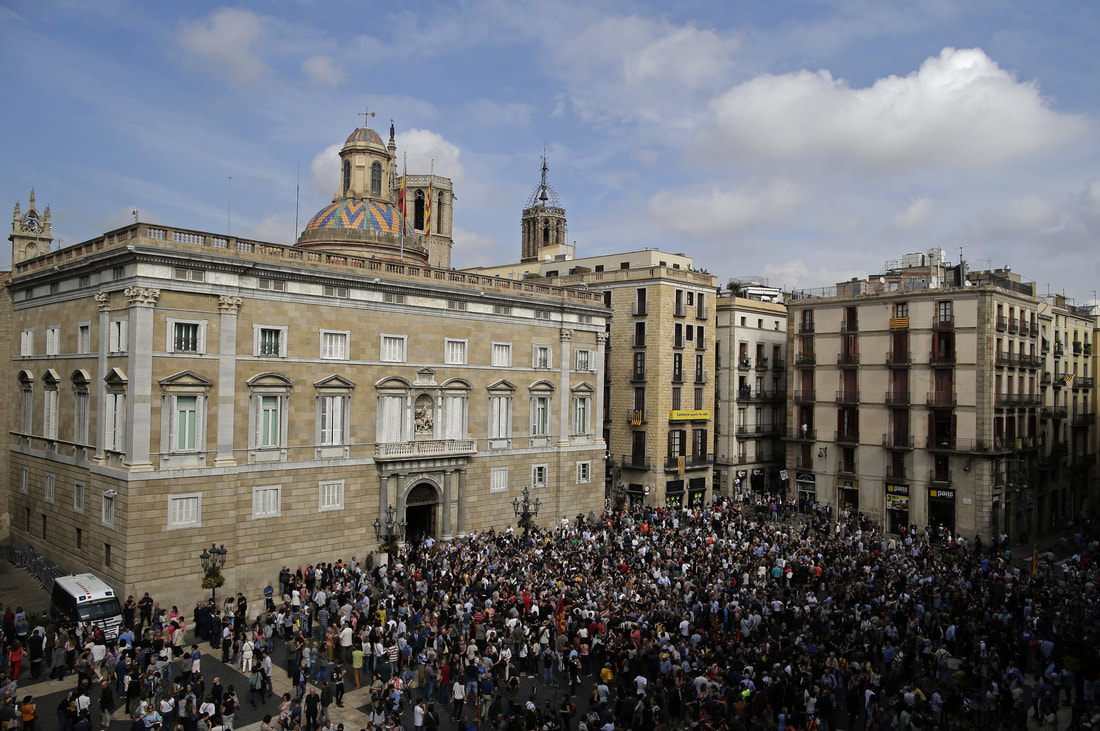|
The facts of the Catalan referendum (which you can read in our Raw Data) provide a specific, precise depiction of the violence and conflict that occurred during the vote. And while this information came from the articles we analyzed, the outlets went beyond facts and used language that may provoke excitement, fear or anger amongst readers, potentially at the expense of accuracy. This is the definition of sensationalism, and it can influence readers’ thoughts, feelings or opinions about a subject. To demonstrate this, consider the following excerpts from the articles. Sensational, subjective or vague language (spin) is bolded. Sensational: “Catalonia’s defiant attempt to stage an independence referendum descended into chaos on Sunday, with hundreds injured in clashes with police…” (The New York Times)
Factual: “Catalan emergency officials say 761 [now 893] people have been injured as police used force to try to block voting in Catalonia’s independence referendum…Police used batons and fired rubber bullets.” (BBC)How do your thoughts and feelings for the first sentence compare to the second one? Does each sentence give you a different impression? Here’s another example: Sensational: “The referendum…has pitched the country into its deepest constitutional crisis in decades and deepened a centuries-old rift between Madrid and Barcelona.” (Reuters) Factual: “Catalonia…has its own language and culture. It also has a high degree of autonomy, but is not recognised as a separate nation under the Spanish constitution.” (BBC).Does “constitutional crisis” or “centuries-old rift” give you a precise understanding of the conflict between Catalonia and Spain? Probably not. It’s reasonable that media outlets would report both quantitative (e.g. numbers and statistics) and qualitative information (e.g. people’s experiences), especially when covering topics of violence and conflict. But don’t facts like police firing rubber bullets and 893 civilians being injured speak for themselves? There are also more precise ways to describe the qualities of the conflict than using words like “chaos” and “crisis.” For example, outlets could report how people’s lives were affected and how these events may influence Catalonia’s political, social and economic circumstances. Some of the articles we analyzed partially did this, but it was obscured by subjective and vague language. Perhaps more important is how words like “chaos” and “crisis” could sensationalize violence and conflict. Using them may provoke fear or anger in readers, which can interfere with critical thinking, tolerance and conflict resolution. This is where the media can play a beneficial role. Fact-based reporting may not single-handedly prevent conflict and violence, but it could promote awareness, understanding and critical thinking instead of fear, narrow viewpoints and polarization. Comments are closed.
|
Jens Erik GouldJens is a political, business and entertainment writer and editor who has reported from a dozen countries for media outlets including The New York Times, National Public Radio and Bloomberg News Archives
February 2018
Categories
All
|

 RSS Feed
RSS Feed